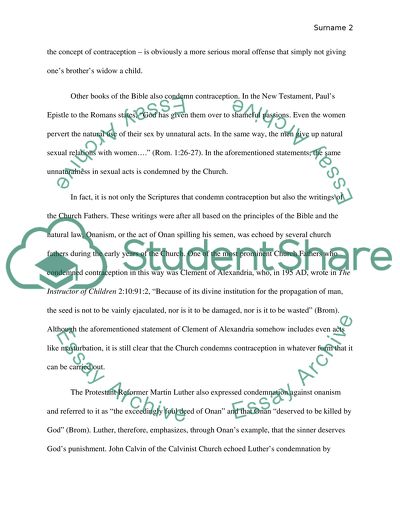Cite this document
(“The Church's View on Contraception Essay Example | Topics and Well Written Essays - 1000 words”, n.d.)
Retrieved from https://studentshare.org/religion-and-theology/1447958-contraception
Retrieved from https://studentshare.org/religion-and-theology/1447958-contraception
(The Church'S View on Contraception Essay Example | Topics and Well Written Essays - 1000 Words)
https://studentshare.org/religion-and-theology/1447958-contraception.
https://studentshare.org/religion-and-theology/1447958-contraception.
“The Church'S View on Contraception Essay Example | Topics and Well Written Essays - 1000 Words”, n.d. https://studentshare.org/religion-and-theology/1447958-contraception.


